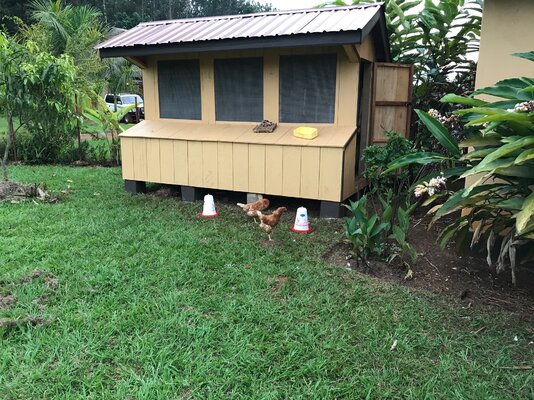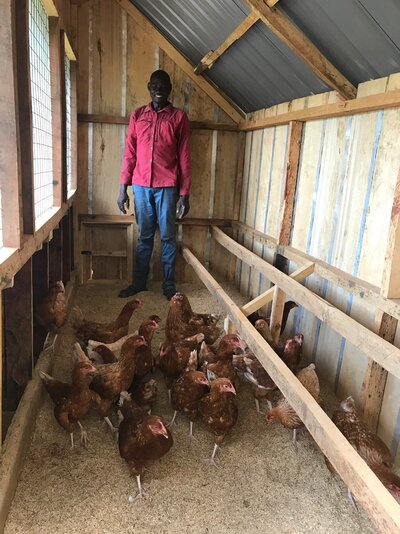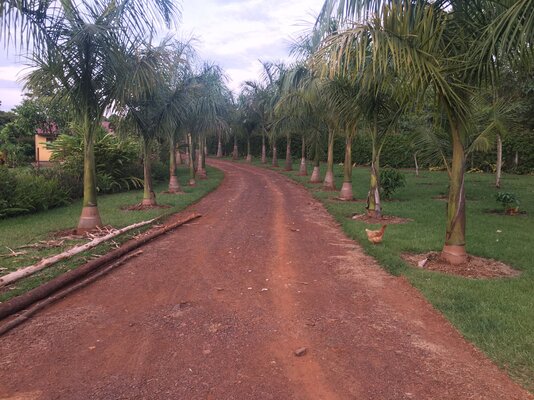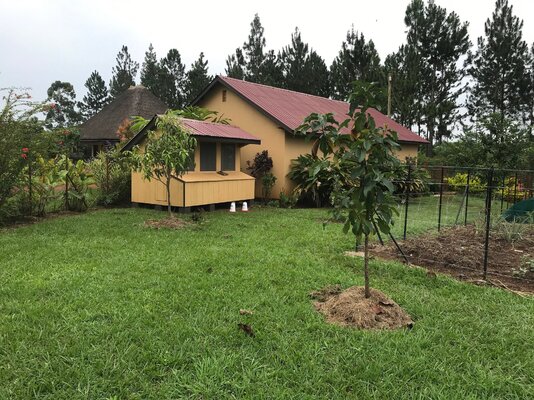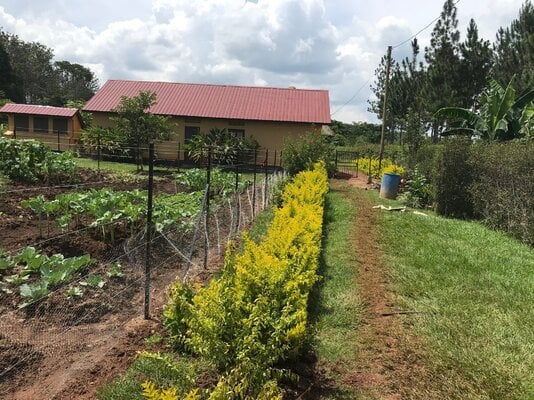Paul McWhorter
In the Brooder
- Jul 17, 2021
- 8
- 74
- 41
I have a flock of 25 chickens on a 5 acre homestead on the equator in East Africa. The chickens are about 8 months old, and look like they are Rhode Island Reds. The birds look healthy and happy, but egg production is spotty. I will get two or three weeks where the girls are laying eggs, then they will go two or three weeks without laying. Being on the equator, every day has 12 hours light and 12 hours dark. The temps at night are mid-60's and temps in daytime are mid-70's. The property is lush green with all types of plants and huge number of bugs, grubs, flies, worms, small lizards and they like to pick through large compost piles. They free range over the entire property during day, and put themselves up in a nice Amish style coop at night. I offer cracked corn as supplemental feed, but they seem happy eating mainly the bugs and grazing on the greenery. Where I am, there is not access to premixed chicken feed or other chicken stuff and medicines you would get at a US feed store. When they are producing the eggs are big and beautiful with nice hard shells. They do not appear to be molting. This deal is very different than my experience over the last many years raising chickens in West Texas, where I had everything figured out. I am not sure what to try. Does anyone have any experience growing chickens in tropical conditions? Any suggestions would be appreciated.
Thanks,
Paul

Thanks,
Paul
Attachments
Last edited:

